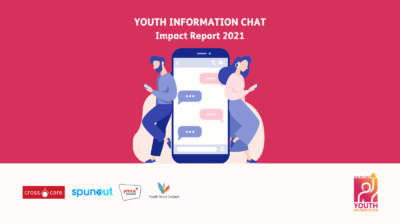How I found my studying style for the leaving cert
Caoimhe shares what she found helpful while studying for the Leaving Cert.

The Leaving Certificate was a very overwhelming process for me, as I know it is for almost everyone. It felt to me like there was so much to do, so much I had to know and there was no time to do any of it. I then procrastinated doing anything because I was so overwhelmed; and I didn’t know where or how to start.
It didn’t help that I would see others around me with their colourful flashcards or aesthetic notes, feeling pressure to be like that, but also feeling like I could never achieve this. I soon learned, however, that I didn’t need notes like these to do well in the Leaving Certificate; I just needed to find a method of study that suited me.
Before starting, I tried to break everything down into manageable chunks and made checklists to stop myself from feeling so overwhelmed. I had to find my own way to feel on top of things and in control.
Finding what worked for me
As someone who is an active and practical learner, I could not study and revise by just sitting and reading chapter notes. This never worked for me as I felt I was reading but not comprehending what I was reading, thus wasting time. It took some trial and error to learn which methods of study suited me and helped me retain more information.
Past papers
The main method I used was past papers. If there was a topic that I wanted to revise, I would just find all the relevant exam questions on that topic and start answering them without looking at my notes beforehand or without the assistance of my notes. This was a good way for me to see where the gaps were in my knowledge, and whether I knew the topic or not. I found after doing this I was so surprised at how much I did remember about a topic, which made me feel less worried about not being prepared for the exams.
If I had completed all the exam papers, I would go to the questions in my textbook for that subject, or often I would even make up my own questions. I would go through my notes on the chapter or topic I was studying, and I would pick out the main things discussed in that chapter that could be important or on the exam.
By practising exam paper questions, I could familiarise myself with the paper layout, timing, time management, and marking scheme whilst also doing revision. So, when I thought I was doing very little, I was achieving lots.
If you want extra support with past papers, the website studyclix.ie has lots of great resources to help you study better.
Mind maps
Another study tool I found useful for last-minute revision and cramming, which we all end up doing at some point, is using mind maps. Mind maps are very visual, and they can be designed whatever way you like, or you can use templates.
They can include as much or as little detail as you like and can contain diagrams, pictures, etc. They are great for using just before a test or the night before the Leaving Cert exams as a memory refresher. They should only include relevant and important information.
For example, for Leaving Cert Home Economics, there were several content-heavy chapters on nutrients which contained a lot of subheadings and information that I needed to remember. My mind map would include all these important headings and I would have a list of words underneath or a short description to explain the heading. It enabled me to get almost 20 pages of text down to 1!
YouTube videos
I found that YouTube videos provided great information on several topics I was studying. There are many Leaving Certificate teachers creating and sharing content on YouTube and I found this a good way to learn. I didn’t feel like I was studying when watching the videos and it just felt like I was watching an informative video.
I held onto more information from these videos sometimes than from reading about the same topic. You should have a look on YouTube for videos about your subject or topics, particularly experiments for subjects like biology or chemistry. Especially if you were not able to carry out the experiments in class due to COVID-19. You see the experiment from an entirely new perspective, and it helps you put into context the experiment you have been reading about and trying to understand.
Quizlet
For subjects with a lot of keywords that need to be remembered or for language subjects, I would create study sets using Quizlet. With Quizlet, you can test yourself and play matching games to try and match terms with definitions or translations. This was an active way for me to learn and it would show me my progress, which ones I knew and which ones I needed to go back over again.
I downloaded Quizlet onto my phone so that if I had a spare minute somewhere I could be revising the sets using Quizlet. When revising for my Leaving Certificate Irish exam, for both the written exam and oral exam, I created different sets on Quizlet with different categories of key terms.
For example, I put all the new terms and useful vocabulary I wanted to remember for the ‘sraith pictiúr’ into a set together, and I put vocabulary about an essay topic (i.e. the environment and global warming) in another set.
Study methods that suit you
Obviously, these are not methods that are specific to the Leaving Certificate; these are methods that I still use today in college to help me revise. I use past papers available to know what to expect on this year’s end of semester exams. I have created several lists of revision questions for the various modules I’m doing to test my knowledge and to guide and structure my revisions. I watch YouTube videos of topics discussed in class to further my knowledge on the topic and to better understand the topic.
You should find a study method that best suits you and stick to it. It’s about trial and error until you find success. You are only wasting time by using methods that are of no benefit to you and your revision. Remember, you are not alone, and a little work now goes a long way and will benefit you in the long run. Best of luck with the exams!
Need more information, advice or guidance?
We offer information, advice and guidance about the issues that matter to you. Our online Youth Information Chat service is for 16 to 25 year olds and is available Monday to Friday, 4pm to 8pm (excluding Bank Holidays).






